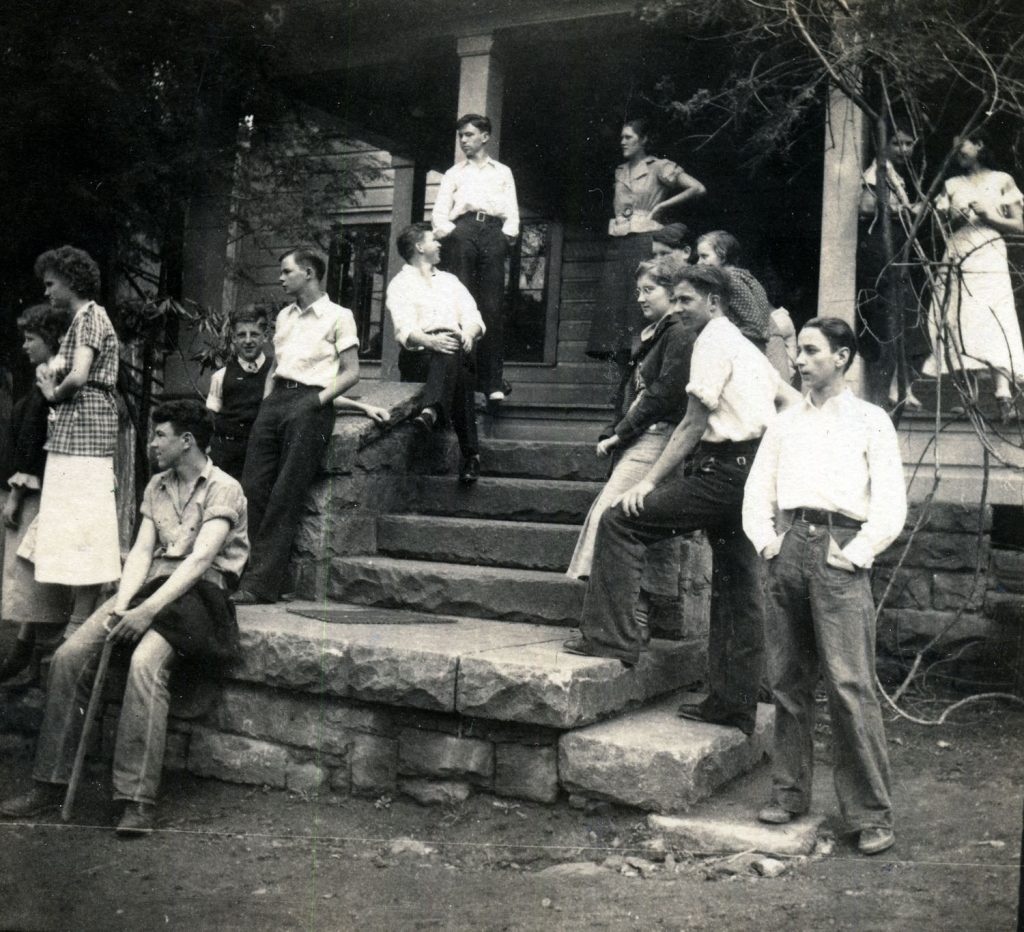Pine Mountain Settlement School
Series 04: ADMINISTRATION
Series 13: EDUCATION
Glyn Morris Writing
Philosophy of Secondary Education
1937-1938

TAGS: Glyn Morris, Philosophy of Secondary Education, secondary education, Pine Mountain Settlement School, Harlan County KY, educational philosophy, position papers, curriculum, teachers, students, citizenship, objectives of education, community problems, religion, aesthetic possibilities
GLYN MORRIS 1937-38 WRITING Philosophy of Secondary Education
While Glyn Morris was Director, he sought to codify his educational philosophy and objectives for the Pine Mountain program. The following position paper was provided to the staff workers at Pine Mountain in an effort to bring the full staff on board with the school’s new educational mission.
It is titled, “Philosophy of Secondary Education.”
GLYN MORRIS 1937-38 WRITING: Philosophy of Secondary Education
- Philosophy of Secondary Education [1937-38]
The pupil is an individual with needs as determined by ability and background to which the curriculum, as much as possible must constantly be made sensitive. Recognized completion of school comes when the student has used all that can be offered on the basis of his needs and abilities, and not in terms of arbitrary units. The curriculum should be constructed on the basis of local needs and the larger body of common knowledge which man needs in his daily living – in proportion as seems best, keeping in mind always the welfare of the student and constantly checking the curriculum In every available way.
Learning is best promoted and retained when based upon interest and expressed in activity. As much as possible, interest should be used as the teacher’s most effective tool. With this in mind, teachers should be constantly alert to local conditions and daily situations which are pregnant with possibilities for stimulating interest, we recognize, however, that lack of tools and materials or the limitation of organization sometimes requires other incentives and methods. We also recognize the weal-ness[?] of such and the need to keep constantly in mind the limitations of other, more arbitrary methods.
This means, then, that the teacher must not only be familiar with her particular field of subject-matter but must be sufficiently familiar with other particular fields of knowledge to be able to draw upon them and to interrelate her teaching. Further, her teaching should deal with actual situations, either local or remote, which may affect In any way, directly or indirectly, the life of the student.
We believe that the student should be fully aware of obligation and privilege of active citizenship; and should be provided with all necessary experiences and tools that will equip him for an intelligent exercise Of this right in a democracy. We believe that democracy
does provide for a process of orderly change and that citizenship is best exercised when it is intelligently trained to be conscious of the need for such Improvement. The organization of the school should be consistent with this idea.
The immediate objectives of education are to provide the student with basic skills and attitudes, together with the judgement which must work in and through these; to encourage an appreciation of all that the race has experienced and created at Its best and worst.
Ultimate objectives are simply an expansion of the immediate objectives as the student progresses in life; the difference now being that he is called upon to assume greater responsibility under different circumstances, and is subject to greater penalties.
II. Objectives of the School with reference to Philosophy of American Secondary Education
- Insofar as it is wise to do so, to supply each student with that body of tool information commonly accepted as necessary for an understanding of his place In both the local and larger community.
- To teach habits, skills and attitudes, placing emphasis where it seems necessary because of local conditions. It is assumed that the school is setting up methods of becoming increasingly sensitive to community problems. At the present time this means; instruction in better methods of home-management because of very poor living conditions; skill in use of hands for improvement of physical property, etc.; understanding of diet and personal hygiene; knowledge of social and economic forces operating In sub-rural and recently industrialized area; instruments at hand for bringing about change (e.g., the co-op store).
- As soon as possible to assist the student by a continual process to prepare to take a place in society consonant with his talents; and, with all necessary reservations, to prepare him thoroughly for a specific task.*
- To use our own community, as far as possible, as the object for field work in our reconstructive endeavors.
- To acquaint the student with a more rational type of religious expression, as differentiated from the highly emotional and ethically deficient practices of local sects.
- To provide through an active governing body, practice in democratic processes.
- To use local materials of nature and local folk art as the basis for appreciation of aesthetic possibilities of this area. In addition, to create a desire for more forms of musical expression.
*Reservations as to changes in occupational opportunities, etc.
See Also:
EDUCATION Guide
GLYN MORRIS Director – Biography
GLYN MORRIS 1931-1977 Guide to Talks, Writing and Publications

